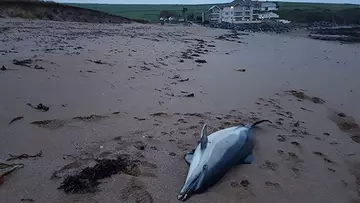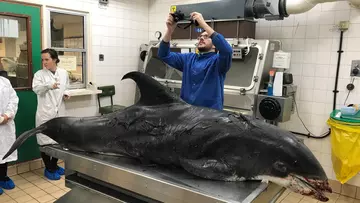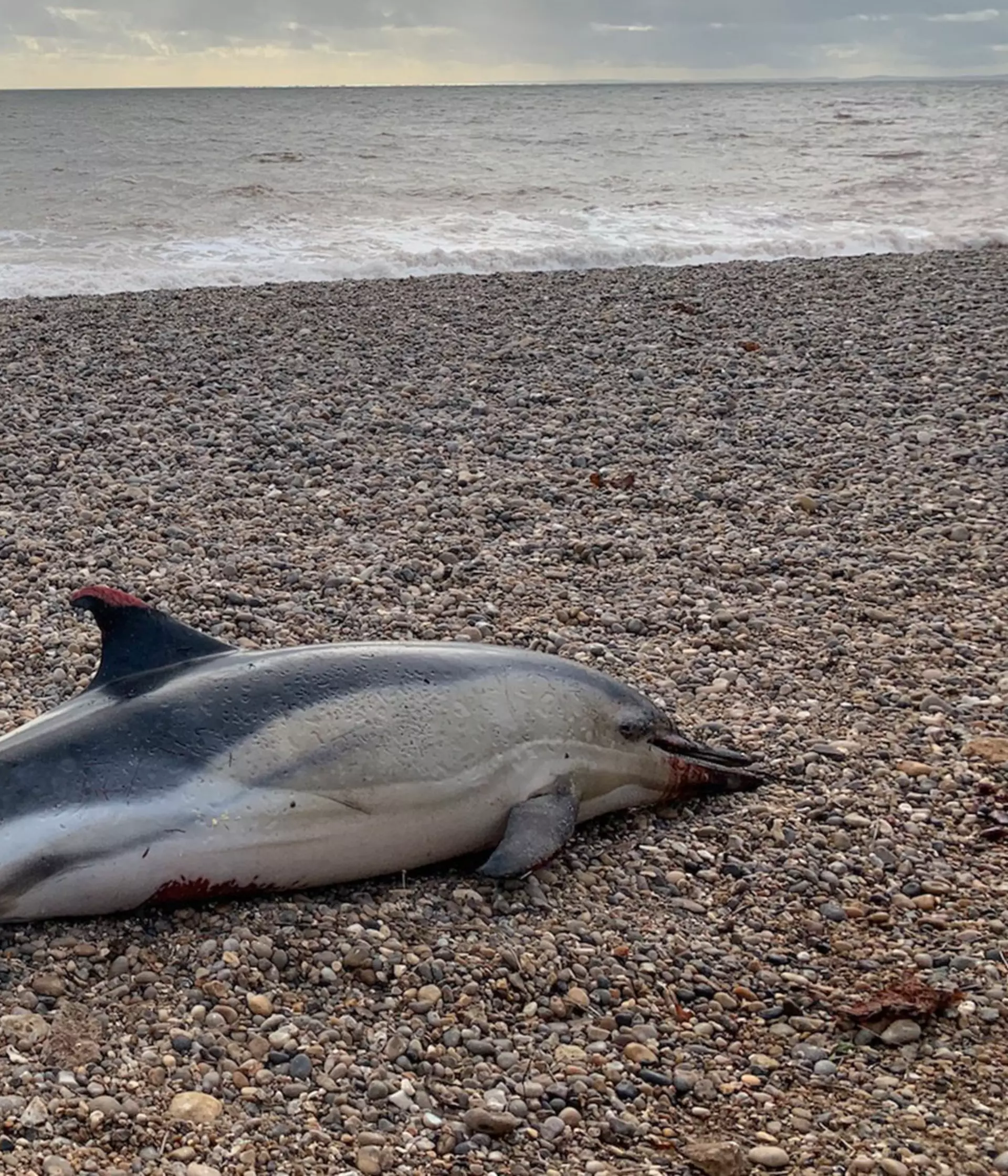
Dr Michael J. Williamson
Post-Doctoral Research Associate
Climate change is predicted to have profound consequences for marine ecosystems.
Due to the growing political and social drive to address its impacts, monitoring and mitigating climate change is a priority in marine policy in the UK.
I have been analysing data collected by the ZSL-led Cetacean Strandings Investigation Programme (CSIP) from 1990-2018 on UK stranded whales, dolphins and porpoises to see if strandings data could help inform climate change policy in the UK. The research is published in Marine Policy and here will explain our work in a bit more detail.
How can a stranded whale tell you about climate change?
By monitoring how the species composition of the whales and dolphins that strand in the UK changes over time, we can see if species that are usually found in warmer waters are stranding more often, or species that are typically found in cool UK waters are stranding less. This can give us an indication that the seas and marine environments around the UK are warming and the habitat for marine species is changing.

What did your research show?
We analysed strandings data from four dolphin species that commonly strand in the UK. Two species that are normally found in cold waters (Atlantic white-sided and white-beaked dolphins) and two species that typically prefer warmer water (short-beaked common and striped dolphins).
We found that across the UK there was a significant change in the composition of these species stranding over time, with a greater increase in proportions of warm water adapted species (short-beaked common and striped dolphins) from 1990-2018.
As annual sea surface temperatures have risen a degree or more across this period, this indicates that the marine habitat around the UK is changing and causing changes to the species composition that live here.
Can we expect to see more strandings of warm water species in the future?
If the seas continue to warm due to anthropogenic driven climate change as predicted, we can expect the habitat to become more preferable to warm water adapted species, and as a result, we will see an increase of the proportions of these stranding, as they spend more time in UK waters throughout the year.

What’s next for this research, can CSIP’s data tell you any more about the impact of climate change?
It will be interesting to see how this impacts populations of cold water adapted species such as Atlantic white-sided and white-beaked dolphins around the UK. Will they be forced to move increasingly northwards to find suitable cool habitat? Or will they stay in UK waters, but face increased competition for food and habitat from warmer water adapted species? Further research on diet from strandings data will help us figure out these questions. There’s a lot that strandings data can be used for!
What can ZSL’s supporters do to help?
If you see or find a stranded cetacean don’t forgot to report it to the UK Cetacean Strandings Investigation Program by calling the strandings reporting line 0800 6520333.
FIND OUT MORE AT THE UK STRANDINGS WEBSITE
